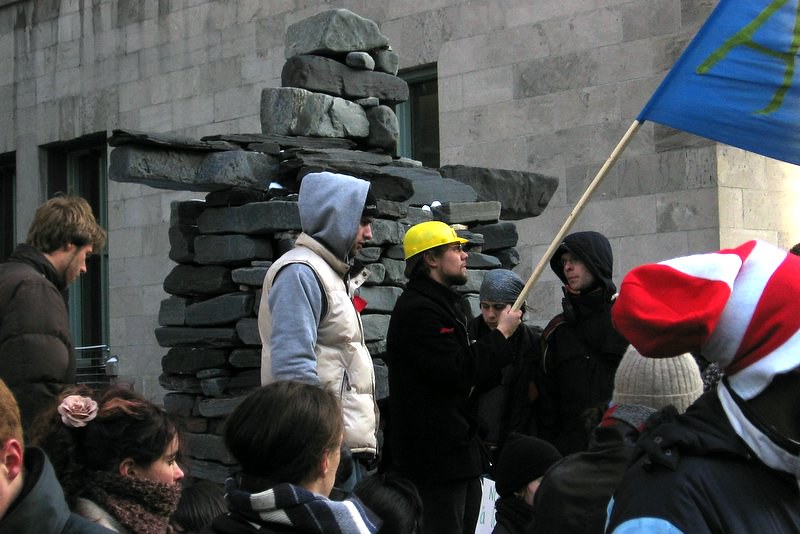STRAIN
A'I GWMNI
AND COMPANY
14A Stryd Penlan, Pwllheli, Gwynedd

A Summer of Protest?

Date: 2020-06-16
As we slowly exit the Covid19 ‘lockdown’ we have seen several protests in major cities. As life moves toward a more ‘normal’ footing, whatever that may be, and as we enter the Summer months, protest action may likely increase.
In this article, we explore some of the legal powers that regulate processions and assemblies, found in the Public Order Act 1986.
Notifying the police in advance
Written notice shall be given in accordance with this section of any proposal to hold a public procession intended:
(a) to demonstrate support for or opposition to the views or actions of any person or body of persons,
(b) to publicise a cause or campaign, or
(c) to mark or commemorate an event,
unless it is not reasonably practicable to give any advance notice of the procession. Notice is not required where the procession is one commonly or customarily held in the police area (or areas) in which it is proposed to be held or is a funeral procession organised by a funeral director acting in the normal course of his business.
The notice must specify the date when it is intended to hold the procession, the time when it is intended to start it, its proposed route, and the name and address of the person (or of one of the persons) proposing to organise it. Time limits apply to the service of notices.
Where a public procession is held, each of the persons organising it is guilty of an offence if:
(a) the requirements as to notice have not been satisfied, or
(b) the date when it is held, the time when it starts, or its route, differs from the date, time or route specified in the notice.
Police Conditions
The police can impose conditions. If the senior police officer, having regard to the time or place at which and the circumstances in which any public procession is being held or is intended to be held and to its route or proposed route, reasonably believes that:
(a) it may result in serious public disorder, serious damage to property or serious disruption to the life of the community, or
(b) the purpose of the persons organising it is the intimidation of others with a view to compelling them not to do an act they have a right to do, or to do an act they have a right not to do,
he may give directions imposing on the persons organising or taking part in the procession such conditions as appear to him necessary to prevent such disorder, damage, disruption or intimidation, including conditions as to the route of the procession or prohibiting it from entering any public place specified in the directions.
A person who organises a public procession, or takes part in it, and knowingly fails to comply with a condition imposed is guilty of an offence, but it is a defence for him to prove that the failure arose from circumstances beyond his control.
There are similar powers for assemblies of persons.
Prohibiting Processions
If at any time the chief officer of police reasonably believes that, because of particular circumstances existing in any district or part of a district, the powers to impose conditions will not be sufficient to prevent the holding of public processions in that district or part from resulting in serious public disorder, he shall apply to the council of the district for an order prohibiting for such period not exceeding 3 months as may be specified in the application the holding of all public processions (or of any class of public procession so specified) in the district or part concerned.
A person who organises a public procession, the holding of which he knows is prohibited by virtue of an order under this section is guilty of an offence, likewise, for a person taking part in such a procession.
If you need any advice on the holding of mass gatherings, including how best to work with police and local authorities to ensure a successful and safe protest, please get in touch with us.
We can advise on all manner of alleged offences under the Public Order Act and other relevant legislation and have particular expertise concerning all aspects of the law relating to protests and the right to free speech and assembly.
How can we help?
If you need specialist advice, then get in touch with Rhys Tudur on 01758 455 500 and let us help. We can advise on a plea, defences and potential sentences in a wide range of circumstances.
Back to view all blog posts.
Our Specialties Include:
> Personal Injury
> Matrimonial & Family Law
> Criminal
> General Disputes & Litigation
Useful Information
> Legal Costs Funding & Appeals
> Resources & Articles
> Accreditations & Awards
> Testimonials
>Private Client Rates
Contact Us
Address: 14A Stryd Penlan, Pwllheli, Gwynedd
Phone: 01758 455500
E-mail: office@strainandco.co.uk

© 2025 Strain and Company. Authorised and Regulated by the SRA firm no 644052. All Rights Reserved. Privacy Notice.
Website by Delwedd.